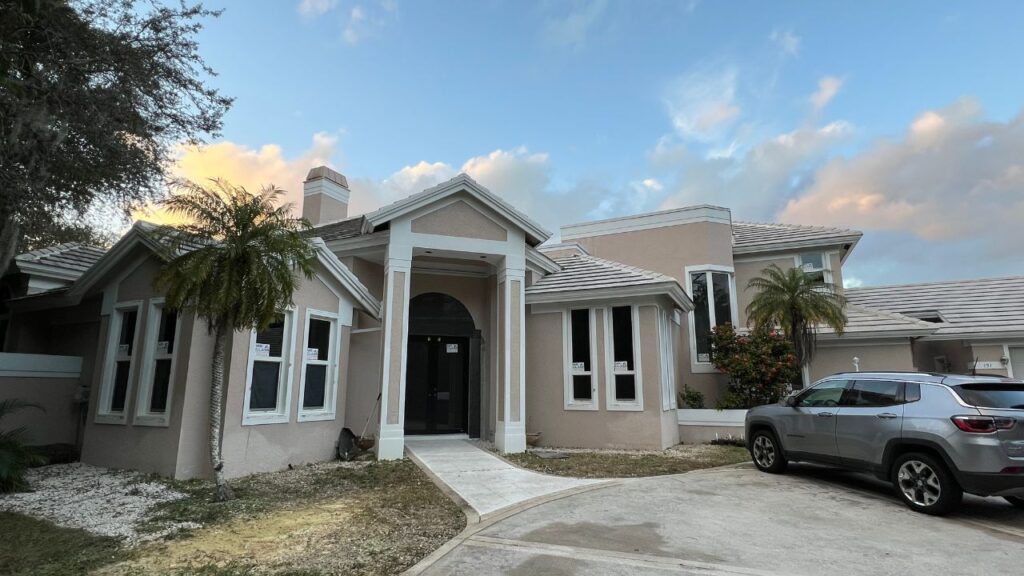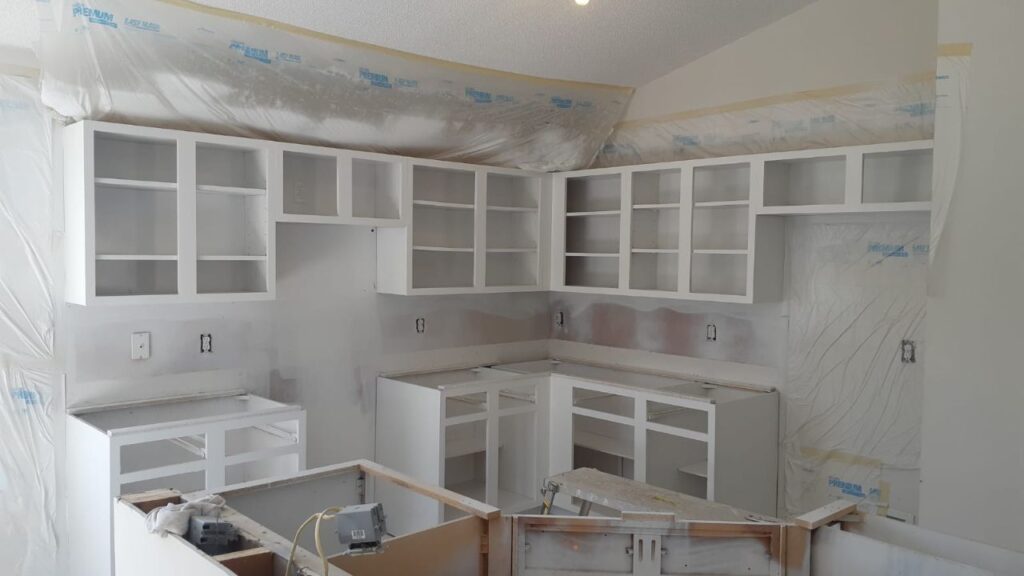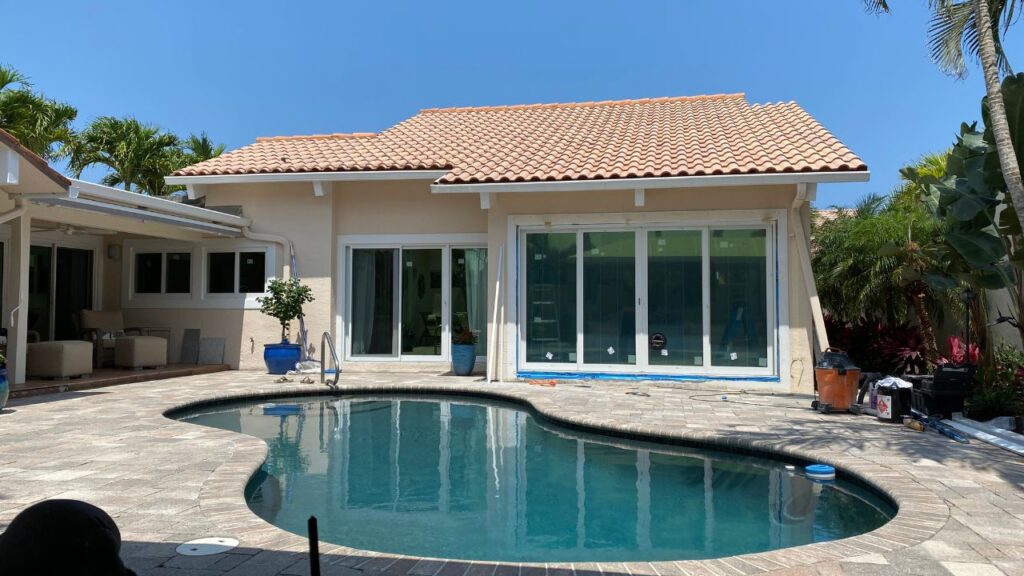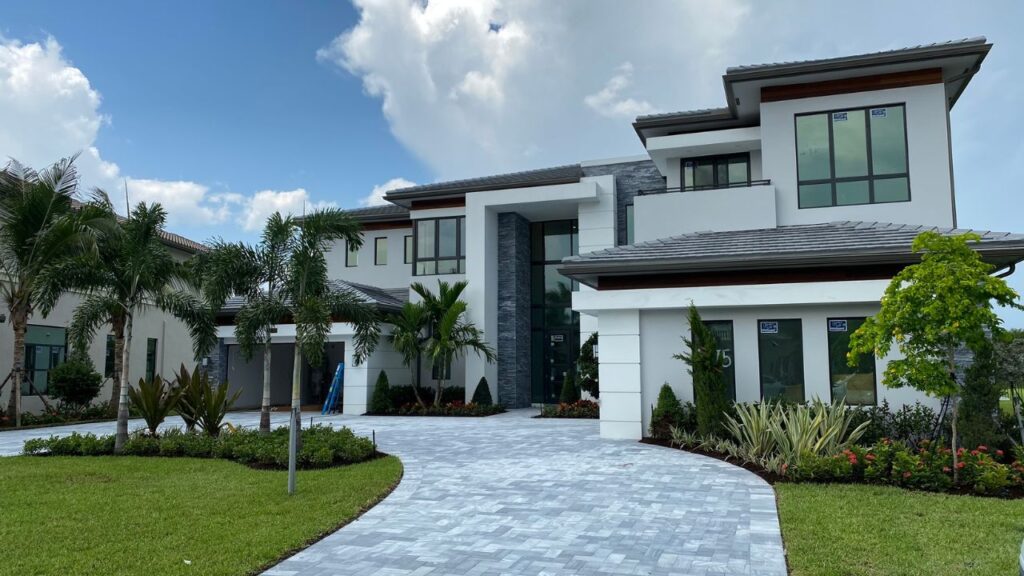Guide Cost to Remodel Residential And Commercial Projects
Cost considerations are super important in any residential or commercial remodeling project. They impact the overall budget and help us make wise decisions. By assessing costs associated with materials, labor, permits and more, we can understand how much funds to allocate for each aspect. This helps us budget effectively and avoid any financial burdens.
Plus, cost considerations also help us prioritize our remodeling needs depending on our budget. We can take a few risks in certain areas, while keeping other aspects more cost-efficient. That way, we can still achieve great results without exceeding our financial limits.

Take for example a couple who wanted to transform their outdated kitchen into a modern paradise. They had limited funds but wanted an upscale look. So, they consulted a remodeling expert and opted for more affordable materials like quartz. By considering costs at every step, they achieved their dream kitchen without breaking the bank.
In conclusion, when it comes to remodeling, cost considerations are key. They help us make informed decisions, stay within our budget and achieve desired results without any extra financial burden. So, next time you are remodeling your space, keep in mind that cost considerations can lead to success!
Factors to consider when planning a remodel
To plan a successful remodel, it is crucial to consider various factors. Budgeting for a remodel, evaluating the scope of the project, and assessing the timeline for completion form the core of this section. Each sub-section will provide you with valuable insights and solutions for navigating these vital considerations.
Budgeting for a remodel
Remodeling? Let me tell you a story. A friend of mine started a kitchen renovation without considering their finances. They ran out of money in the middle of the project, and had to get cheaper materials and compromise on the design. It was a source of frustration and regret.
It’s why budgeting is so important.
Here’s what to keep in mind:
- Check your finances. Work out how much you can spend.
- List your priorities. Decide which parts of the remodel matter most.
- Research costs. Look up materials, labor, and other expenses.
- Set aside extra cash. Plan for any extra costs that may arise.
- Compare quotes. Make sure you get the best value.
- Make a budget plan. Plan out all the spending.
It’s not just about saving money. Think about resale value, energy efficiency, and long-term maintenance too.
Evaluating the scope of the project
Planning a remodel? Evaluate the scope first! Understand what needs to be done. Consider these factors:
- Existing space – measure layout, structures like walls, windows, doors.
- Desired changes – add rooms, fixtures, finishes?
- Structural changes – walls, foundations?
- Budget limitations – realistic budget, prioritize essential elements.
Evaluate all aspects, guide decisions from design to construction. Pro Tip: Consult with professional for successful renovation.

Assessing the timeline for completion
When planning a remodel, assessing the timeline is key. Here is a table showing the stages and estimated duration for each stage of a remodel:
Stage | Estimated Duration |
|---|---|
Preparation | 1-2 weeks |
Demolition | 1-2 weeks |
Construction | 4-6 weeks |
Finishing Touches | 2-3 weeks |
Final Inspections | 1-2 weeks |
To stay on schedule, follow these tips:
- Hire a reliable contractor.
- Make a detailed schedule with start/end dates.
- Maintain communication with your contractor.
By doing this, you can successfully assess the timeline for a remodel. This will help you manage expectations and keep the project on track.
Estimating costs for a remodel
To estimate costs for a remodel, equip yourself with valuable insights on average costs for residential and commercial projects. Additionally, understanding the cost variables—such as materials, labor, permits—holds the key to accurate budgeting. Researching average costs and comprehending cost variables will arm you with the necessary knowledge to successfully estimate the financial aspects of your remodel.
Researching average costs for different project types (residential vs commercial)
Researching costs for residential and commercial projects needs an exact analysis. By understanding how much each project type costs, you can decide what to do for a remodel.
Look at the average costs:
Project Type | Average Cost |
|---|---|
Residential | $30,000-$50,000 |
Commercial | $100,000-$500,000 |
Usually, residential projects are small like kitchen work or bathroom changes. Commercial projects are bigger like office redesigns or restaurant improvements. This explains the difference in expenses.
Also, think of things that may change the expense. This includes materials, labor, permits, and any sudden issues. This way, you can get a more accurate cost.
If you are planning a residential or commercial remodel, it’s necessary to understand the costs. This will help you make a budget, and you won’t have any financial troubles.
Don’t forget to research and know the average costs! With this knowledge, you can start your remodeling project confidently.
Understanding cost variables (materials, labor, permits, etc.)
It’s essential to know the factors that influence the cost of a remodel. These include materials, labor, permits, and more. Knowing these beforehand helps you budget. Here’s a breakdown of the cost variables:
- Materials: This is one of the primary cost factors. Flooring, cabinets, countertops, paint, fixtures, and appliances vary in price and can affect the total budget.
- Labor: You’ll need skilled professionals. This includes contractors, plumbers, electricians, carpenters, painters, and tradespeople. The costs depend on the complexity and scope of work.
- Permits: Depending on the project, you may need permits from local authorities or HOAs. These costs can be forgotten, but should be included in the budget. Not getting necessary permits can lead to fines or stopping construction.
- Miscellaneous Expenses: Unexpected expenses can include tools, debris removal costs, temporary housing, and unforeseen repairs.

Research and consult with experts to make sure you understand all potential expenses. Don’t let cost worries stop you! With the right planning and budgeting, you can turn your living space into something remarkable. Start exploring now!
Tips for cost-saving in a remodel
To save costs in a remodel, identify areas where costs can be reduced without compromising quality. Explore alternative materials or design options that can help cut down expenses. Additionally, consider negotiating with contractors or suppliers for better prices. These strategies will be explored further in the upcoming sub-sections.
Identifying areas where costs can be reduced without compromising quality
When remodeling, cost-saving is a must. Quality need not suffer for savings – here are tips to help:
- Re-evaluate the project scope – assess to find unnecessary costs and streamline.
- Look into cheaper materials that offer similar aesthetics and functionality.
- Maximize space utilization – get more storage without costly expansions.
- Compare prices from different suppliers – ensure quality and value.
- Check contractor quotes – review labor costs and consider alternatives.
Also, be aware of local building codes and permits – avoid fines.
Little details can add up – switch to energy-efficient lighting or install thermostats for long-term savings.
Exploring alternative materials or design options
When it comes to materials for remodeling, there are advantages and disadvantages to each option. Reclaimed wood adds character and warmth to a space but may require maintenance over time. Laminate flooring is cost-effective and easy to install, but is less durable than hardwood flooring. Vinyl siding is low cost and low maintenance, but may fade or crack with age. Quartz countertops are resistant to stains and scratches, but they are more expensive than laminate countertops.
It’s important to consider your needs, preferences, and budget before making a decision. Additionally, exploring alternative materials or design options can contribute to sustainability efforts. Reusing resources reduces environmental impact and creates aesthetically pleasing spaces.
The Spruce, an online resource for home improvement advice, suggests using alternative materials or offbeat design choices to save costs during a remodel. Why not give it a try?
Negotiating with contractors or suppliers for better prices
Research numerous contractors or suppliers and compare their prices. Doing so can give you a better understanding of market rates and let you negotiate better. Clarify your budget and needs before negotiating. This will help you set achievable expectations and avoid shocks. Leverage your knowledge about competitors’ prices. Demonstrating that you have other choices may get you a better deal. Bundle services or products together. This can give you leverage to talk and maybe get discounts or added perks. Establish relationships with contractors or suppliers by staying in touch and being loyal.

This could create a trust bond, making them more likely to give competitive prices. Negotiating is not just about getting lower prices, it’s about finding solutions beneficial for both sides. So, take action now! Don’t miss the chance to save money on your remodel. Use these negotiation techniques and start optimizing your spending today.
Hiring professionals for a remodel
To ensure a successful remodel, hiring professionals is essential. Researching and selecting reputable contractors or designers, understanding the importance of obtaining multiple quotes, and reviewing contracts while ensuring clear communication about costs and expectations are crucial sub-sections to consider. These steps will help you make informed decisions and achieve your remodeling goals within your budget.
Researching and selecting reputable contractors or designers
Research platforms and directories that list local contractors or designers. Read reviews and testimonials to get an idea of the quality and reliability of their work. Ask friends, family, or colleagues for recommendations.
Contact multiple contractors or designers for initial consultations. Ask questions about their experience, portfolio, and approach. Prioritize those who specialize in your type of remodel. Make sure they have the necessary licenses and certifications.
When making your final decision, consider cost, communication skills, professionalism, and compatibility with your design preferences. Pro Tip: Don’t forget these important details!
Understanding the importance of obtaining multiple quotes
Getting multiple quotes is a must when choosing professionals for a remodel. Comparing prices, services, and expertise will help you make a wise decision. Multiple quotes also save you money and give you more options to consider. You’ll learn about market trends and industry standards, so you can negotiate for the best deal. Don’t miss out! Get multiple quotes and make a well-informed choice – it’s key for success.
Reviewing contracts and ensuring clear communication about costs and expectations
Read the contract carefully! Pay attention to terms, conditions and scope of work.
Ensure all important details are present, like timelines, payments and materials.
Ask for clarification if any legal terms are unfamiliar.
Talk budget and costs with the contractor.
Be clear about expectations and ask for itemized estimates and receipts.
Mark realistic milestones with deadlines.

Maintain open lines of communication and seek input.
Make sure the contractor offers a warranty.
Once, a couple made a costly mistake. They did not review the contract nor discuss costs. Miscommunication caused expenses to skyrocket beyond their budget. They learned the hard way the importance of reviewing contracts and communicating costs. Now, they are eager to share this lesson with others.
Managing costs during the remodel process
To successfully manage costs during the remodel process, efficiently monitor progress and expenses, address unexpected costs or plan changes, and make informed decisions to stay within the budget.
Monitoring progress and expenses throughout the project
Stay informed by regularly reviewing progress updates.
Track expenses in real-time to get a clear understanding of money allocation.
Use a system or software to track and report on project expenses.
Work together with stakeholders to ensure everyone is aware of cost expectations and progress.
Keep key decision-makers and stakeholders up-to-date on progress and expenses.
Also, revisit initial cost estimates and budgets often.
Changes or unforeseen circumstances may necessitate financial plan adjustments.
To maximize success and stay within budget constraints, stay vigilant, track diligently, and communicate effectively.
Make sure to take charge now for optimized decision-making based on accurate information.
Don’t let lack of oversight hinder your remodeling journey!
Addressing any unexpected costs or changes in plans
Unexpected costs or changes in plans can come up during the remodeling process. You must address these quickly and efficiently to avoid getting off-track!
- Stay Flexible: Be ready for more expenses and changes. Have a contingency budget for any potential surprises.
- Communicate: Talk with your contractor or designer. Discuss any changes or added costs.
- Prioritize: Check the impact of unanticipated costs or changes on your remodel goals. Work out what is essential and where you can make concessions.
- Get Professional Advice: Seek experts and professionals who can help you with unexpected costs or changes.
These tips will help keep the remodel process running smoothly, and reduce stress and costs.
Unexpected costs and changes may be caused by unforeseen structural problems, material prices that fluctuate, or design modifications requested by the homeowner. It’s key to stay adaptable and active in managing these issues.
Making informed decisions to stay within the budget
Investing in a remodel can be overwhelming. To manage costs, informed decisions are key. Here are 3 points to consider:
- Prioritize needs. Allocate most budget to essential aspects. Avoid overspending on unnecessary items.
- Research and compare prices. Take time for best deals. Compare prices and quality before deciding.
- Create detailed budget plan. Include all expected expenses. Account for unexpected costs. Add a contingency fund.
It’s important to track expenses throughout the remodel. Regularly review and adjust budget plan. Hire a pro manager or contractor who specializes in cost management. Their expertise can help streamline the process and make budget-conscious decisions.
Conclusion
To wrap up your exploration of cost considerations in successful remodel projects, summarize the importance of thoughtful planning and budgeting. Emphasize the significance of considering costs throughout every stage of the project. Encourage readers to utilize the provided tips and resources to ensure a cost-effective remodel.
Summarizing the importance of cost considerations in successful remodel projects
Cost considerations are crucial for remodel projects. Making wise decisions about spending keeps the project within budget and stops overspending. Planning and analyzing expenses allows better use of resources, leading to a better outcome.
Material and supplier selection is key. Researching and comparing prices helps contractors find cost-effective solutions that don’t sacrifice quality. Keep track of hidden costs like permits, inspections, and delays, which can affect the budget.
Knowing market trends and labor costs can prevent unnecessary expenses. Staying up-to-date on industry developments helps when hiring subcontractors or sourcing services. Proactive cost management ensures a successful project and financial stability.
Encouraging readers to use the provided tips and resources for a cost-effective remodel.
Encouraging readers to use tips and resources can lead to a cost-effective remodel. Follow these steps for success without breaking the bank:
- Assess Your Needs: Take stock of what changes you want. Prioritize and set a budget.
- Research and Plan: Look for inspiration. Take note of ideas that fit your budget.
- Cost-Effective Solutions: Explore ways to achieve the desired look at a lower cost. Repurpose, opt for affordable materials, or find discounts.
- DIY or Professional Help: Evaluate if you can do certain tasks yourself or need professionals. Be realistic to avoid costly mistakes.
- Stay On Track: Stick to your plan and budget. Remind yourself of the long-term benefits of a cost-effective remodel.
Remember that small decisions add up to save money. Utilize the tips and resources to achieve an impressive transformation without overspending.
Also, keep tabs on local contractors for cost-saving opportunities and quality on your renovation journey.
Frequently Asked Questions
The cost of remodeling a residential kitchen can vary greatly depending on factors such as the size of the kitchen, the materials used, and the extent of the renovations. On average, homeowners can expect to spend anywhere between $10,000 to $60,000 for a kitchen remodel.
While it is important to plan and budget for the main costs of a remodeling project, there may be additional or unexpected expenses that can arise during the process. These can include unforeseen structural issues, permit fees, or the need for specialized contractors. It is recommended to include a contingency fund of around 10-15% of the total project cost to account for any unexpected expenses.
The duration of a residential remodeling project can vary depending on the scope of work. Smaller projects, such as bathroom renovations, can be completed in a matter of weeks. Larger projects, such as whole-house remodels, can take several months to a year. The timeline also depends on factors such as the availability of materials and the efficiency of the contractors involved.
While it is possible to save money by taking on some of the remodeling work yourself, it is important to consider your own skill level and the complexity of the tasks involved. Certain areas, such as electrical or plumbing work, may require professional expertise to ensure safety and compliance with building codes. It is advisable to consult with a contractor to determine which tasks can be safely DIY-ed and which should be left to professionals.
To get an accurate cost estimate for your remodeling project, it is recommended to consult with multiple contractors or designers. Provide them with detailed information about your project, including your requirements, preferences, and any specific materials you have in mind. Getting multiple quotes will allow you to compare prices and ensure you are getting a fair estimate for the scope of work.
Process To Get Residential and Commercial Construction Cost Estimate Report
Here I am going to share some steps to get your residential and commercial construction cost estimate report.
-
You need to send your plan to us.
You can send us your plan on info@estimatorflorida.com
-
You receive a quote for your project.
Before starting your project, we send you a quote for your service. That quote will have detailed information about your project. Here you will get information about the size, difficulty, complexity and bid date when determining pricing.
-
Get Estimate Report
We do residential and commercial construction cost estimating and prepare a detailed report for your project. At last you finalize the report and finish the project.

